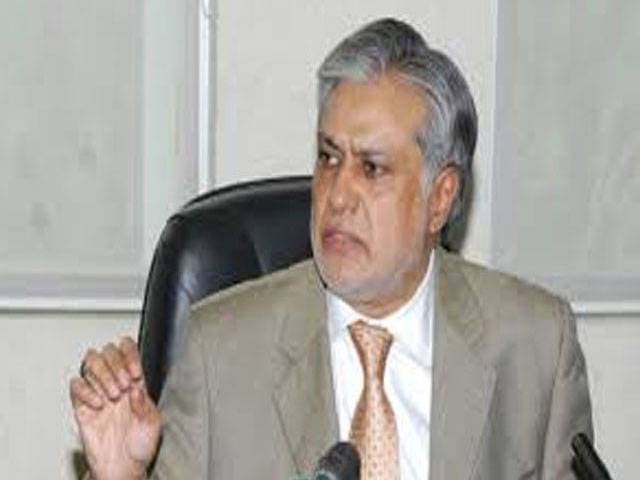Finance Minister Ishaq Dar has said the State Bank of Pakistan (SBP) acting governor probably wouldn’t be the permanent choice, as the country’s economy faces headwinds before elections next year, reported Bloomberg.
The incumbent government will soon decide a new head of the SBP after declining to extend the three-year term of Ashraf Wathra, who introduced South Asia’s first monetary policy committee last year after continued questions about the central bank’s independence. Riaz Riazuddin, a deputy governor, was selected as acting head in his place on May 1.
“I doubt whether he would be a permanent governor,” Dar said in an interview with Bloomberg Television on Friday in Yokohama, Japan. “Within three months, either we have to appoint somebody or anybody, it can be him or anybody else. Even the previous governor stands a chance,” he added.
The change at the central bank comes as Pakistan’s economy starts to look vulnerable after boosting reserves and growth in the past three years with help from $6.6 billion International Monetary Fund programme that ended in September.
Spending and loans taken on infrastructure projects under the more than $50 billion China-Pakistan Economic Corridor (CPEC) is widening the current-account deficit as exports, such as textiles, continue to decline.
Dar, who was attending the Asian Development Bank’s annual meetings, said that Pakistan had asked for a boost to its annual loan programme by $500 million to $2.5 billion by 2019 to help the economy, which he expects to grow by 5 to 5.5 percent in the year ending June.
“Our own infrastructure financing and development needs are much bigger than the whole Asia,” Dar said. “Obviously one wishes to access more,” he added. Dar denied a report published in the Financial Times last week that Pakistan had asked state-owned Chinese banks to loan the government about $300 million in the first quarter of this year and $900 million in 2016 to fend off a currency crisis.
“This is an untrue picture, we do normal business with all the banks all over the world,” he said. “We haven’t reached out to the Chinese government as such per say to help us, right now we have almost $16 billion reserves, so we have no issue at all,” he added.
The central bank in its most recent quarterly report said Pakistan received $382 million in loans from China during the last quarter of 2016 to finance the country’s “growing current account gap.” Those disbursements reached $848 million in the first half of the year through June 2017.
Ahead of presenting the annual budget at the end of this month, Dar reiterated that the size of Pakistan’s economy is probably understated by as much as 25 percent as the base year used by the statistics agency is almost two decades old. The World Bank has been authorised to carry out a study, he said.
Inflation, which rose 4.78 percent in April, is expected to average around 4 percent for the year through June, Dar said. The government’s target is to keep that level at about 6 percent or lower. “In 2013 Pakistan was known as an unstable macro economy, so we have turned around in three plus years,” he said.






